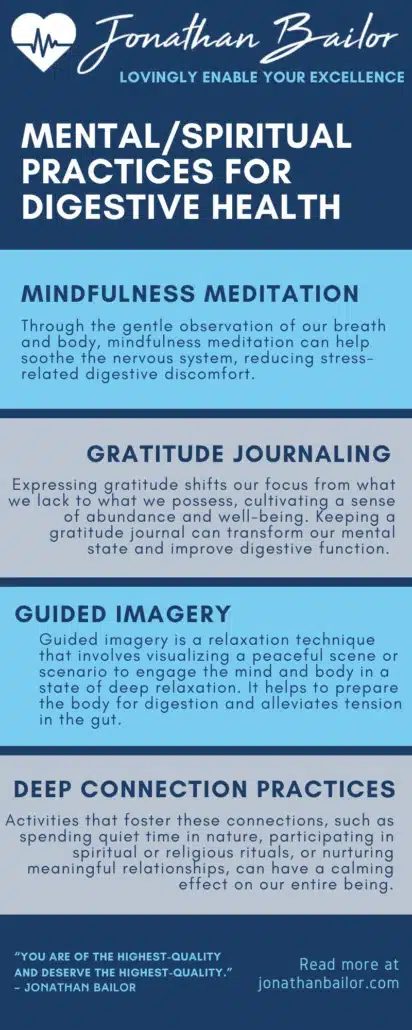19 Simple Ways to Reduce Bloating and Boost Gut Health
Feeling bloated is like wearing an invisible belt that’s been pulled a notch too tight. It’s uncomfortable, sometimes embarrassing, and often leaves us seeking solutions to loosen that grip. But what if the key to finding relief isn’t locked away in some obscure medical text or hidden in the aisles of your local pharmacy? What if it’s nestled within the wisdom of our everyday choices—what we eat, how we move, and even the rhythm of our breath?
In today’s world, where quick fixes and instant gratification are often sought after, the journey to gut health and reduced bloating takes a gentler, more sustainable path. It’s about nurturing your body, listening to its cues, and making small, impactful changes that collectively make a big difference. This isn’t about drastic diets or rigorous regimens. Instead, it’s about empowering you with knowledge and practical steps to reclaim your comfort and vitality.
For anyone who’s ever felt that discomfort in their abdomen, wondering why their digestive organs seem to be in rebellion, you’re not alone. It’s a common experience, but the discourse around it can often feel isolating, filled with complex medical jargon or overwhelming advice. That’s why this guide is dedicated to breaking down those barriers, offering strategies that are accessible, backed by science, and, most importantly, effective.
This guide isn’t just a list of tips; it’s a companion on your journey towards a happier gut. From exploring the importance of hydration and the power of certain foods that naturally support your GI tract to embracing a lifestyle that encourages overall well-being, this introduction is your first step toward understanding and addressing bloating in a holistic and nurturing way. It’s about finding balance in your daily habits, making informed choices about what you consume, and recognizing the interconnectedness of your physical health with your mental and emotional state.
As we move forward, remember that the path to reduced bloating and improved gut health is as much about the journey as the destination. It’s a process of discovery, learning, and, ultimately, empowerment. You’re taking the first step towards not only alleviating discomfort but also enhancing your overall quality of life. Welcome to a new beginning, where each choice you make brings you closer to a more comfortable, energized, and vibrant self.
Unveiling Pathways for a Harmonious Gut: Lifestyle Adjustments
In the quest for gut health and the alleviation of bloating, our journey extends beyond diet, exercise, and mental well-being. It encompasses a tapestry of lifestyle choices that, while often overlooked, play a pivotal role in nurturing our digestive harmony and reducing the risk of digestive and kidney diseases. The modifications we propose here invite you to engage with your environment and daily routines in ways that foster a supportive backdrop for your gut’s ecosystem. These suggestions are gateways to a balanced lifestyle, ensuring that every facet of your day contributes to your gut health.
1. Prioritize Sleep Hygiene
The sanctity of sleep and its profound impact on gut health cannot be overstated. Establishing a sleep routine that aligns with the body’s natural circadian rhythms helps keep the digestive system healthy, reducing stress levels that often exacerbate bloating. It is recommended to have 7-9 hours of restorative sleep every night, creating a serene sleep environment free from electronic distractions. Embrace the stillness of the evening hours to signal to your body that it’s time to wind down, supporting a night of deep, healing sleep.
2. Cultivate a Clutter-Free Environment
The spaces we inhabit mirror and influence our internal state. A cluttered, chaotic environment can heighten stress levels, subtly unsettling our digestive juices and causing bloating and other issues. Dedicate time to decluttering and organizing your living and workspaces, creating a serene atmosphere that fosters calmness and well-being. This practice not only soothes the mind but also indirectly supports gut health by cultivating an environment conducive to relaxation and stress reduction.
3. Engage with Nature
Immersing oneself in the natural world has a grounding effect, reducing stress and promoting a sense of peace that benefits the gut. Whether it’s a leisurely walk in the park, tending to a garden, or simply basking in the tranquility of a green space, nature’s restorative powers are a balm for the digestive system. This connection to the earth encourages a slower, more mindful pace of life, allowing the body to relax and digest optimally.
4. Practice Mindful Eating
While not directly related to the content of your meals, how you consume your food significantly affects digestion and bloating. Sit down for meals without the distraction of screens or work, chewing thoroughly and savoring each bite. This mindfulness enhances the digestive process by initiating the release of digestive enzymes, making it easier for your small intestine to break down food and absorb nutrients efficiently, thereby reducing bloating.
5. Embrace a Hydration Ritual
Hydration plays a crucial role in maintaining digestive health, yet its importance extends beyond simply drinking water. Establish a hydration ritual that integrates herbal teas and infused waters, offering variety and enjoyment to your hydration practices. These beverages can be especially soothing for the gut, promoting digestion and reducing bloating without overburdening the system. Make hydration a deliberate and cherished part of your day, a ritual that replenishes both body and spirit.
By weaving these lifestyle changes into the fabric of your daily life, you embark on a holistic path toward improved gut health and reduced bloating. Each step is a gesture of care for your body, a commitment to nurturing your well-being from the outside in.

Feeling Better Is Priceless, That's Why We Don't Put A Price On It!
“It’s Like A Free and Medically Valid Version of Noom and Weight Watchers Online”
~ Dr. Doctor Matthew Oleshiak, MD
Click the 'LEARN MORE' button below for free lifetime access to the fast fix program developed by Jonathan and top Ivy League Medical Doctors
LEARN MOREP.S. It's not a free trial. It's not part of the program for free. The entire program is free, forever, for real! No credit card needed.
Nourishing the Gut: Diet Transformations for Enhanced Well-being
Embarking on a journey toward gut health requires more than just mindful living; it demands a thoughtful examination and transformation of our dietary habits. The food and beverages we consume play a foundational role in either nurturing our digestive system or contributing to discomfort and bloating.
The dietary changes suggested below are crafted to introduce you to a world where each meal and snack is an opportunity to support your gut’s health. This guide is designed to enrich your diet with choices that harmonize with your body’s needs, paving the way for a bloating-free and revitalized existence.
1. Embrace Fermented Foods
Incorporating fermented foods such as kimchi, sauerkraut, kefir, and yogurt into your diet introduces beneficial probiotics that support gut health and enhance the microbiome’s diversity. These natural probiotics help balance the gut bacteria, which is crucial for digestion and absorption. Start with small servings to allow your digestive system to adjust, and gradually increase the quantity based on your comfort and tolerance.
2. Opt for Low-FODMAP Foods
Foods high in FODMAPs (fermentable oligosaccharides, disaccharides, monosaccharides, and polyols) can trigger bloating and discomfort in sensitive individuals. Embracing a diet rich in low-FODMAP foods can significantly reduce these symptoms. This includes eating more leafy greens, carrots, cucumbers, grapes, oranges, and strawberries. Tailoring your diet to include these gut-friendly options can lead to noticeable improvements in digestive well-being.
3. Incorporate Ginger and Peppermint
Ginger and peppermint are renowned for their digestive benefits. Including these in your diet, either through herbal teas, as spices in meals, or even as fresh additions to smoothies, can help soothe the digestive tract, relieve bloating, and promote a sense of gut well-being. Their natural anti-inflammatory properties offer a gentle yet effective way to support digestion.
4. Increase Intake of Soluble Fiber
Soluble fiber, found in foods like chia seeds and blueberries, can be particularly beneficial for gut health. This type of fiber dissolves in water, forming a gel-like substance in the gut that aids in digestion and helps regulate bowel movements. Soluble fiber also feeds the beneficial bacteria in the large intestine (colon), helping balance the gut microbiome. Introducing soluble fiber gradually into your diet can help minimize bloating and promote a healthy digestive system.
5. Limit Artificial Sweeteners and Processed Foods
While it may be tempting to choose artificial sweeteners as a calorie-free alternative to sugar, these can often lead to bloating and discomfort for those with sensitive digestive systems. The same goes for heavily processed foods. Opting for natural sweeteners in moderation, such as stevia or honey, or embracing the natural sweetness of fruits can be a more gut-friendly choice. Similarly, choosing whole foods over ultra-processed ones is much better for your digestive process.
By mindfully integrating these dietary changes, you’re not just feeding your body but healing it. Each meal becomes a step toward more vibrant, balanced gut health, leading you away from discomfort and towards a life of well-being and vitality.

Embarking on Movement: Physical Activities for Gut Harmony
The essence of our well-being is intricately linked to movement, a vital piece of the puzzle in nurturing gut health and easing bloating. Physical activity, in its various forms, can significantly enhance the functionality of our digestive system, promoting regularity and reducing discomfort.
This selection of physical activities is designed not as a rigorous regime but as gentle invitations to incorporate movement into your daily life in a way that feels nourishing and supportive. Each suggested activity aligns with the objective of harmonizing your digestive processes, illustrating that the path to gut health is both active and enjoyable.
1. Gentle Yoga Flows
Yoga, with its emphasis on stretching and deep breathing, offers a dual benefit for the digestive system. Gentle yoga flows, particularly those that incorporate poses like twists and forward folds, can stimulate the abdominal organs, enhancing digestion and alleviating bloating. Incorporating a short yoga practice into your daily routine, even for just 10 to 15 minutes, can make a noticeable difference in your digestive well-being.
2. Daily Walking Rituals
Never underestimate the power of a simple walk. Walking is a low-impact exercise that can improve circulation throughout the body, including the digestive tract. Establishing a daily walking ritual, particularly after meals, can help stimulate the gut and encourage regularity. Aim for a brisk but comfortable pace, allowing the rhythm of your steps to gently massage your internal organs.
3. Pilates for Core Strength
Pilates focuses on strengthening the core, which includes the muscles surrounding the stomach and intestines. Strengthening these muscles through Pilates can improve gut health by enhancing your posture and facilitating smoother digestion. Engaging in Pilates a few times a week can help to soothe bloating and support overall digestive function.
4. Cycling at a Leisurely Pace
Cycling, especially at a leisurely pace, can be an enjoyable way to support your gut health. The act of pedaling encourages movement in the gut area, which can help with gas passage and relieve bloating. Whether on a stationary bike or cruising through your neighborhood, cycling promotes cardiovascular health while being kind to your digestive system.
5. Stretching and Deep Breathing Exercises
Incorporating stretching and deep breathing exercises into your day can profoundly affect your digestive health. These activities help to reduce stress, a common culprit behind digestive discomfort, and promote relaxation of the gastrointestinal tract. Simple stretches combined with mindful breathing can be practiced anytime, offering an immediate soothing effect on the gut.
By embracing these physical activities, you embark on a path of movement that not only enhances your physical fitness but also brings equilibrium to your digestive system. This journey through movement is a testament to the body’s capacity for self-healing, with each step, stretch, and breath moving you closer to optimal gut health and comfort.

Cultivating Inner Balance: Mental and Spiritual Practices for Digestive Well-being
In the intricate dance of maintaining gut health, the role of mental and spiritual well-being is often illuminated by the softest of spotlights, yet its influence is profound. This journey towards digestive harmony invites us to explore the serene spaces of our minds and spirits, acknowledging that our internal ecosystem is a reflection of our external tranquility.
The practices outlined below serve as beacons, guiding us toward a state of mental and spiritual balance that naturally fosters digestive well-being. They are not mere exercises but rituals of self-care that weave the fabric of our daily existence into a tapestry of inner peace and physical health.
1. Mindfulness Meditation
Mindfulness meditation is a practice that brings us into the present moment, teaching us to observe our thoughts and feelings without judgment.
By dedicating time each day to this practice, even just five to ten minutes, we can significantly lower stress levels, which are often a contributing factor to digestive issues. Through the gentle observation of our breath and body, mindfulness meditation can help soothe the nervous system, reducing the stress-related digestive discomforts that many experience.
2. Gratitude Journaling
The act of expressing gratitude shifts our focus from what we lack to what we possess, cultivating a sense of abundance and well-being. Keeping a gratitude journal, where daily entries highlight moments or things we are thankful for, can transform our mental state, reducing anxiety and stress. This positive mental shift can indirectly support gut health by fostering a serene internal environment conducive to optimal digestive functioning.
3. Guided Imagery
Guided imagery is a relaxation technique that involves visualizing a peaceful scene or scenario to engage the mind and body in a state of deep relaxation. This practice can be particularly beneficial before meals or during times of digestive discomfort, as it helps to prepare the body for digestion and alleviates tension in the gut.
By regularly engaging in guided imagery, individuals can create a mental sanctuary that supports both mental well-being and digestive health.
4. Deep Connection Practices
Establishing deep connections, whether through nature, spirituality, or relationships, nurtures our soul and provides a sense of belonging and peace. Activities that foster these connections, such as spending quiet time in nature, participating in spiritual or religious rituals, or nurturing meaningful relationships, can have a calming effect on our entire being.
This sense of peace and connection reduces stress and creates an internal environment that supports healthy digestion and reduces bloating. By integrating these mental and spiritual practices into our daily routines, we open ourselves to a world where digestive well-being is nurtured from the inside out. These practices remind us that our gut health is deeply intertwined with our mental and spiritual states, encouraging us to care for our minds and spirits with the same attentiveness we give to our bodies.

FAQ: Unraveling the Mysteries of Gut Health
In our journey towards understanding and nurturing our gut health, numerous questions arise, reflecting our collective curiosity and the desire for clarity. Below, we explore some of the most frequently asked questions about gut health, offering insights that aim to illuminate the path to digestive wellness. Each response is crafted with care, grounded in verified knowledge, to provide you with reliable guidance on fostering a healthy and balanced gut ecosystem.
1. What role do probiotics play in gut health?
Probiotics are beneficial bacteria that play a critical role in maintaining the gut’s microbial balance, aiding in digestion, and supporting the immune system. Incorporating probiotics into your diet through fermented foods like yogurt, kefir, and sauerkraut or through high-quality probiotic supplements can help replenish and diversify the beneficial bacteria in your gut. This diversity is crucial for efficient nutrient absorption, protection against pathogens, and overall digestive health. Regular intake of probiotics can lead to improvements in gut flora balance, potentially reducing symptoms of digestive discomfort and bolstering gut barrier function.
2. Can stress affect gut health?
Yes, stress can have a profound impact on gut health due to the intricate connection between the brain and the digestive system, known as the gut-brain axis. High-stress levels can lead to changes in gut motility, an increase in gut inflammation, and alterations in the composition of the gut microbiota. These changes can contribute to various digestive issues, including bloating, discomfort, and irregular bowel movements. Managing stress through mindfulness, meditation, and adequate rest is vital for maintaining a healthy digestive system.
3. How important is fiber for gut health?
Fiber plays an essential role in gut health by promoting healthy bowel movements, supporting beneficial gut bacteria, and helping to prevent constipation. Soluble fiber, found in beans and fruits, can help absorb water and form a gel-like substance that softens stools. Insoluble fiber, present in vegetables, adds bulk to the stool and facilitates its passage through the digestive system. A diet rich in a variety of fibers encourages a diverse microbiome, which is key to a healthy gut. Remember to add fiber slowly to your diet to avoid abdominal pain and digestive issues.
4. What are the signs of an unhealthy gut?
Signs of an unhealthy gut may include persistent digestive discomfort, such as bloating, gas, stomach pain, constipation, or diarrhea. Conditions that may suggest an unhealthy gut include inflammatory bowel disease (IBD), like Crohn’s disease and irritable bowel syndrome (IBS). Other indicators, such as unexplained fatigue, skin irritations, food intolerances, and irregular sleep patterns, can be more subtle and not directly related to digestion. A leaky gut, which allows food particles to escape into the bloodstream, is another sign of an unhealthy gut. These symptoms can arise from imbalances in the gut microbiota, leading to inflammation and changes in nutrient absorption. Listening to your body and addressing these signs through dietary and lifestyle adjustments is crucial for restoring gut health.
5. How can hydration benefit gut health?
Adequate hydration is vital for maintaining gut health, as water helps to dissolve fats and soluble fiber, allowing for smoother digestion and nutrient absorption. It also keeps the intestines flexible and the stools soft, preventing constipation. Drinking sufficient water throughout the day, along with consuming hydrating foods such as fruits and vegetables, supports the body’s natural digestive processes and contributes to a balanced gut environment. Ensuring you’re well-hydrated is a simple yet effective way to promote overall digestive well-being.
By exploring these questions, we gain a deeper understanding of the fundamental principles that underpin gut health. Embracing this knowledge empowers us to make informed choices in our pursuit of digestive harmony and overall well-being.
Embracing Digestive Wellness: A Journey Shared
As we conclude our exploration of pathways to a harmonious gut, remember that this journey is enriched when shared. The wisdom encapsulated within these pages is more than just a personal guide; it’s a beacon for communal well-being. We invite you to extend this knowledge to your friends and family, fostering a collective pursuit of digestive health. Share this guide across all social media platforms and via email, sparking conversations that matter. Together, let’s embrace the steps toward gut health, making each choice a stride towards vitality, comfort, and a life vibrantly lived.
Feeling Better Is Priceless, That's Why We Don't Put A Price On It!
“It’s Like A Free and Medically Valid Version of Noom and Weight Watchers Online”
~ Dr. Doctor Matthew Oleshiak, MD
Click the 'LEARN MORE' button below for free lifetime access to the fast fix program developed by Jonathan and top Ivy League Medical Doctors
LEARN MOREP.S. It's not a free trial. It's not part of the program for free. The entire program is free, forever, for real! No credit card needed.




